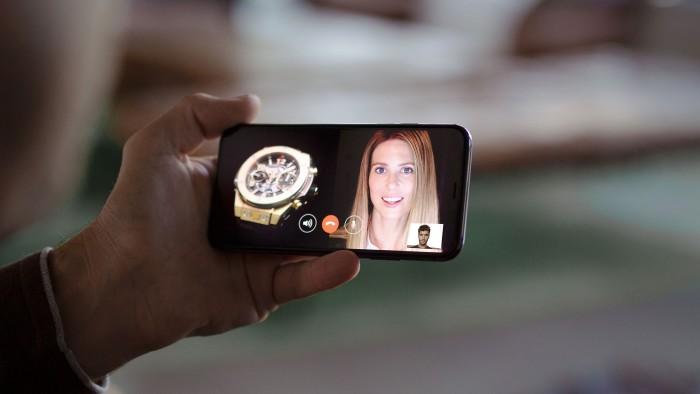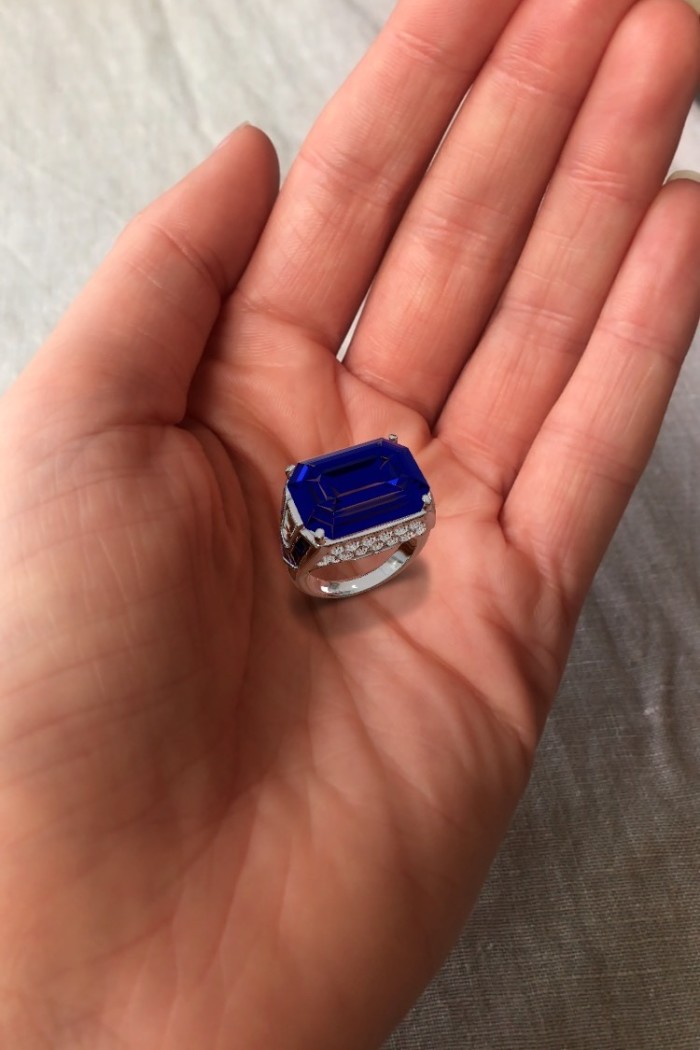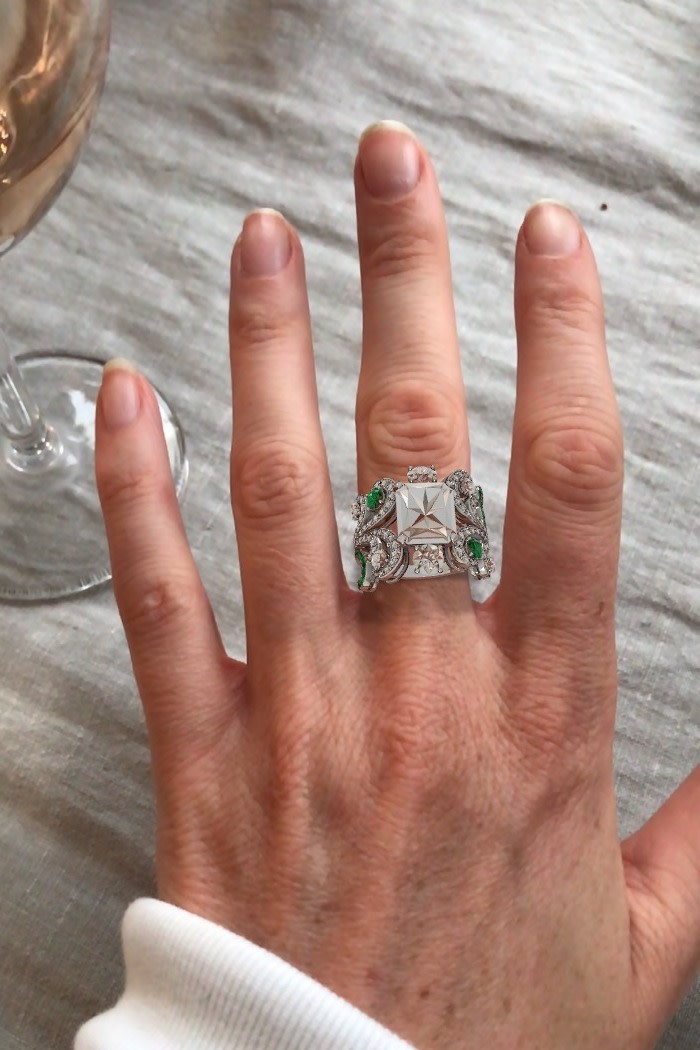How virtual stores became a reality in the world of luxury

Roula Khalaf, Editor of the FT, selects her favourite stories in this weekly newsletter.
The rapid spread of Covid-19 in Europe in the weeks after Valentine’s Day meant watch and jewellery houses had to close their boutiques and focus on selling through virtual channels.
Online chat rooms, video conferencing, WeChat stores and augmented reality on smartphones may pale in comparison with the ceremonious service luxury houses are known for, but as long as products could reach their customers, few companies minded the unusual setting. In fact, many have found more efficient ways to run their operations and plan to keep the arrangements in place once the pandemic is over.
Watches of Switzerland, the retailer, says ecommerce used to account for between 6 and 7 per cent of its watch and jewellery sales. But since lockdown began there has been a 50 per cent-plus increase, especially sales to women, who now account for 35 per cent of customers (up from 30 per cent), says Brian Duffy, chief executive.
Research from consultants McKinsey also showed that 25 per cent of consumers in the US and Europe who bought luxury goods online during lockdown were doing so for the first time.
These figures are encouraging, but Antonio Achille, senior partner and global head of luxury at McKinsey, notes that watches and jewellery were the first category luxury consumers stopped buying during lockdown. He adds that the watch industry’s lack of preparedness for digital sales and dependence on wholesale made it more vulnerable than other luxury categories.
Online jewellery sales do not compensate for sales lost in stores but do offer some respite. British fine jeweller Annoushka was confronted with the challenge through its business in China. Last autumn it sealed a concession deal with Jewelria, part of Chow Tai Fook. Annoushka had to rely on Chinese messaging service WeChat and Hero, an app that simulates the in-store experience via 3D rendering and virtual assistants. “Since the launch of the platform, Annoushka’s global sales teams have registered £100,000 worth of sales through the tool,” says founder Annoushka Ducas.
Jewelria, which is also the distributor for Brazilian jeweller Ara Vartanian, swiftly implemented an “online-to-offline” strategy by using the two-thirds of stores that remained open as distribution facilities for clients located nearby. Jewelria kept up all promotional activities with bloggers, who live-streamed new launches on Tmall, an Alibaba-owned ecommerce site.


Chaumet released filters to allow Instagram users to try on tiaras, while Bulgari launched an invitation-only app to enable clients to try out virtual necklaces and earrings from its new Barocko collections and purchase the real ones.
Hublot, meanwhile, opted for a digital boutique that operates from a dedicated room in its New York store. Clients log in via Hublot’s website on their smartphone and connect through video call to an assistant who shows high-resolution images of watches and presentation movies. Via this hybrid store (currently available only in the US and China) Hublot usually sells watches for an average $20,000, but since lockdown it has handled mostly service requests.
For many, digital processes have not been smooth. “It has been a daily challenge of adaptation and flexibility to keep things moving,” says London-based jeweller Carolina Bucci, referring to marketing and logistics in particular. “How do you present yourself as a luxury accessory at a time of so much global suffering? How do you get the product to customers safely?”
Digital-first jewellery companies hope that disruption comes with opportunity. “Before the lockdown, we still made over 75 per cent of our sales with digital contact only, so our team was well equipped to handle this situation,” says Laura Lambert, founder of Fenton & Co in London. Specialising in coloured-stone engagement rings, the company has been connecting to customers via FaceTime or Zoom to show videos and pictures.
The increased social media popularity of at-home proposals during lockdown have surprised Tobias Kormind, managing director of 77diamonds.com. His company, which sells diamond engagement rings, has had a two-thirds drop in revenue but is keeping business open through its network of sales representatives who offer consultations via digital channels.
For some, home confinement has freed up time to pursue bespoke commissions. Shaun Leane’s goldsmiths have carried on crafting and setting stones at home, with bespoke orders for between £8,000 and £150,000, while Mr Leane himself connects to customers via Skype or Zoom.
What are his clients buying during the lockdown? “It is a split between engagement rings and very personal, design-led bespoke pieces. I have noticed that designs are more sentimental than usual,” says Mr Leane, who is keen on keeping some new working arrangements beyond lockdown.
“It has cemented that working globally really is possible from our London atelier. I can design, then send to client, then 3D-print a model and send this to them.”
Comments